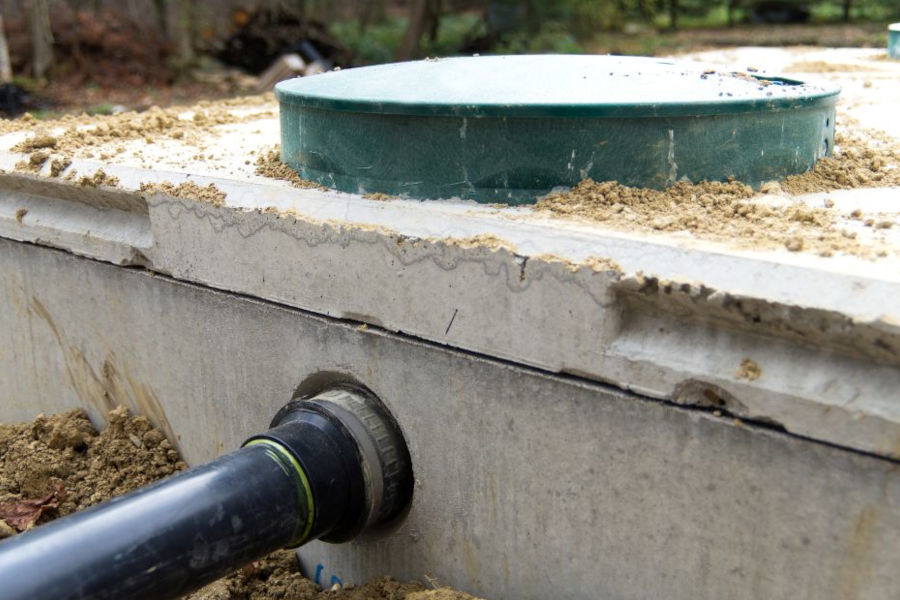Sewer and septic systems are two essential components of modern homes, but many people need to be aware of the differences between the two. According to the EPA, more than one in five homes in the United States have septic systems. Therefore, understanding the differences between these systems is important.
Can I Choose Which System?
In some cases, local zoning regulations may prohibit the use of septic systems and require the use of a sewer system. For example, Seattle Public Utilities operates and maintains the city’s sewer system in Seattle, WA. Tacoma area residents rely on Tacoma Public Utilities. And the City of Puyallup manages the city’s sewer system.
If you are unsure which system you can have, a septic and sewer specialist can help answer any questions you have.
Key Differences Between Sewer And Septic Systems
There are fundamental differences to understand when looking at septic and sewer systems.
Ownership And Maintenance
Sewer systems are owned and maintained by the government, while septic systems are owned and maintained by the homeowner.
Cost
Sewer systems are typically more expensive, as they require a monthly fee and maintenance by the government.
On the other hand, septic systems have a one-time installation cost and ongoing maintenance costs that are the homeowner’s responsibility.
Functionality
Sewer systems are designed to handle wastewater from many homes and businesses, while septic systems are designed for individual homes.
As a result, sewer systems can handle larger volumes of wastewater and are better equipped to handle heavy usage.
Environmental Impact
Sewer systems can harm the environment if they are not adequately maintained, as they can release untreated wastewater into rivers and streams.
Septic systems, on the other hand, are designed to be more environmentally friendly, as they use natural processes to treat the wastewater on-site. However, septic systems can also be harmful if not properly maintained, as they can leak pollutants into the groundwater.
Convenience
Sewer systems don’t require septic tank pumping or maintaining the drain field. This can benefit those living in areas with challenging soils or limited space.
Sewer Systems
Types Of Sewer Systems
Municipal sewer systems are large, centralized systems that serve entire cities or regions. They are owned and operated by the government and handle wastewater from homes and businesses.
Residential sewer systems are smaller systems that serve individual homes or neighborhoods, and connected to the municipal sewer system, and are maintained by the government.
How It Works
A sewer connection operates by dividing wastewater from clean water. The drains in your home lead to a central underground pipeline that transports waste to the city’s sewer system. The waste moves through the network until it reaches a public treatment plant, where all contaminants are removed. The purified water is then utilized for various purposes by the city.
Pros and Cons
Sewer systems offer the benefit of reliability as the government manages them. They handle high usage with ease, processing large volumes of wastewater. However, sewer systems may come with costs, including a monthly fee and government maintenance. Improper maintenance can also result in negative environmental impacts.
Septic Systems
Types Of Septic Systems
Private septic systems serve individual homes and are not connected to a larger sewer system. They are owned and maintained by the homeowner.
Home septic systems are smaller versions of private septic systems designed for home use.
How It Works
Contrary to popular belief, a septic system does not simply shrink down the functions of a sewer system within a closed system on your property.
Instead, it performs all the wastewater treatment right under your house in a self-contained unit. Unlike a sewer system that is connected to a treatment plant, a septic system must break down and separate all the solids, liquids, bacteria, and other elements in the wastewater on-site to prevent contamination of the ground.
Once the treatment cycle is complete, the purified water is not stored in a tank but instead returned to the land, preserving the natural groundwater of the property.
Pros And Cons
Septic systems offer a cost-effective advantage with a single installation fee and maintenance costs that are solely the responsibility of the homeowner, making it a budget-friendly option.
Additionally, their use of natural processes to treat wastewater on-site makes them more environmentally friendly.
Septic systems may have challenges, including less dependability due to homeowner-managed maintenance and the potential for harmful leaks of pollutants into groundwater if not properly maintained.
Get Expert Insight On Sewer And Septic Systems Today With All Septic & Sewer
Choosing between sewer and septic systems will ultimately depend on your specific needs and circumstances. Whether you’re seeking clarification on the differences between the two systems or need assistance with sewer system repairs, septic pumping or drain field repairs, All Septic & Sewer is here to provide guidance and support.



